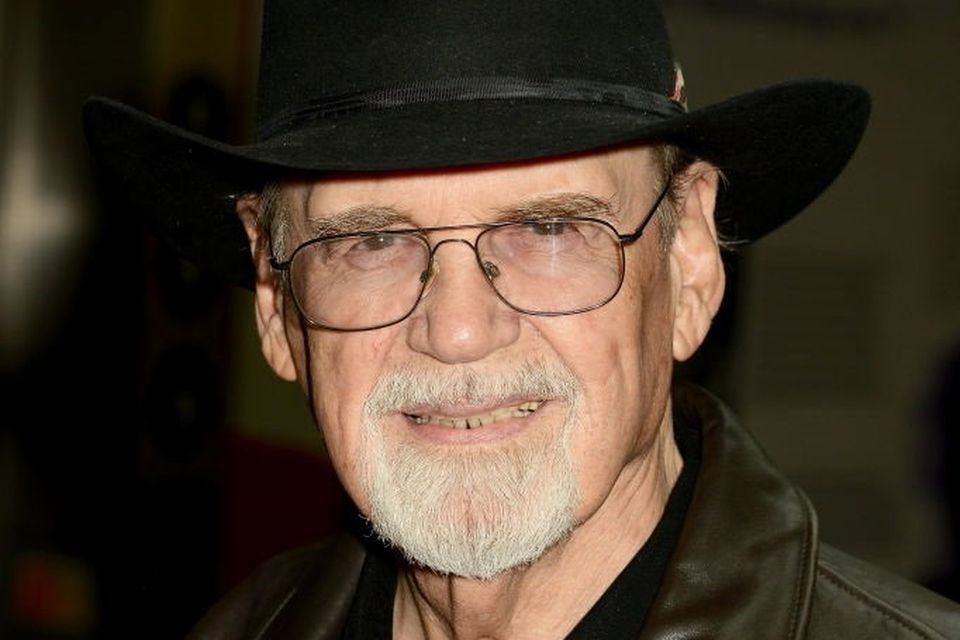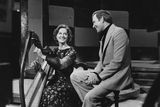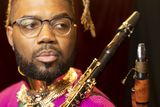Obituary: Duane Eddy, American rock and roll pioneer famous for his echo-laden, twanging guitar sound
Duane Eddy’s trademark was his repertoire of growling low notes. Photo: Getty
Duane Eddy, who has died a few days after his 86th birthday, was famous for his raunchy, low-slung “twanging” guitar instrumentals — distinctive and more subtle than they might at first sound — and with a series of hits in the pre-Beatles era, including Rebel Rouser (1958), Forty Miles of Bad Road (1959), Peter Gunn (1960) and (Dance With The) Guitar Man (1962), he became the bestselling instrumentalist in rock history.
Eddy’s trademark was his echo-laden repertoire of growling low notes and staccato riffs. He first hit on the “twang” when challenged to compose an instrumental.
If, as an instrumentalist, Eddy could hardly hope to rank at the forefront of popular music, he managed several successful comebacks, propelled by enthusiasts such as George Harrison and Paul McCartney and latterly by a new British manager, the Sheffield guitarist Richard Hawley.
He was always popular in Britain, having made his first tour in 1960 when he had three singles in the British charts and a part in the teenage film Because They’re Young. On the night when news of president Kennedy’s assassination reached Britain, Eddy was about to go on stage in Bournemouth.
His career may have trailed away as the Merseybeat boom gathered momentum, but it revived in the 1970s when he had a surprise Top 10 British hit with Play Me Like You Play Your Guitar (1975). While many of his contemporaries quickly vanished from sight, Eddy travelled a dignified path from the svelte, clean-cut, handsome young rocker to white-bearded, black-hatted portliness — and still sounded as cool as ever.
The eldest of three children, Duane Eddy was born in Corning, in New York state, on April 26, 1938. He began to play the guitar when he was five, and by the age of 10 had appeared on the local radio station. At first he immersed himself in country music, even more so after a family move to Tucson, Arizona, when he was 13.
Eddy recorded a tape which was broadcast on a local station and heard by another musician, Jimmy Delbridge. When they began to perform at local dances together, Eddy acquired the custom-made Chet Atkins-model Gretsch guitar that would become his signature instrument.
By the time a local disc-jockey, Lee Hazlewood, heard Eddy play, he was leading a band called the Rebels. Hazlewood booked them at amateur shows and issued some records locally.
With Lester Sill, who raised the money to record four tracks with them, Hazlewood leased Eddy and the Rebels to the fledgling Philadelphia label Jamie Records.
Eddy’s throbbing first effort, Movin’ ‘n’ Groovin’, made in early 1958, introduced his twangy trademark sound, quickly followed by a new single, with Stalkin’ on the A-side and Rebel Rouser on the B-side, featuring a combination of handclaps, yells, honking saxophone and moody guitar reverberation produced in an improvised echo-chamber — an empty water tank with a speaker at one end and a microphone at the other.
The follow-ups, Ramrod and Cannonball (both 1958), set the pattern for the string of Eddy hits that followed. The records were made in Phoenix, with session musicians in Los Angeles sometimes dubbed on. After Delbridge dropped out, the Rebels were joined by the young saxophone player Steve Douglas, later one of the most sought-after session men, and the pianist Larry Knechtel.
Eddy’s version of Henry Mancini’s theme Peter Gunn for the television detective series of that name became a hit almost by accident.
The advent of The Beatles relegated Eddy to the revival circuit, and one of his albums was released only in Japan. Having produced Phil Everly’s solo album Star Spangled Springer in 1973, Eddy returned two years later with an infectious new single, penned by the British writer and producer Tony Macaulay, Play Me Like You Play Your Guitar.
He is survived by his wife Deed, along with a son and a daughter from his first marriage, to Carol Puckett, and a daughter from his second marriage to Jessi Colter.
Join the Irish Independent WhatsApp channel
Stay up to date with all the latest news















